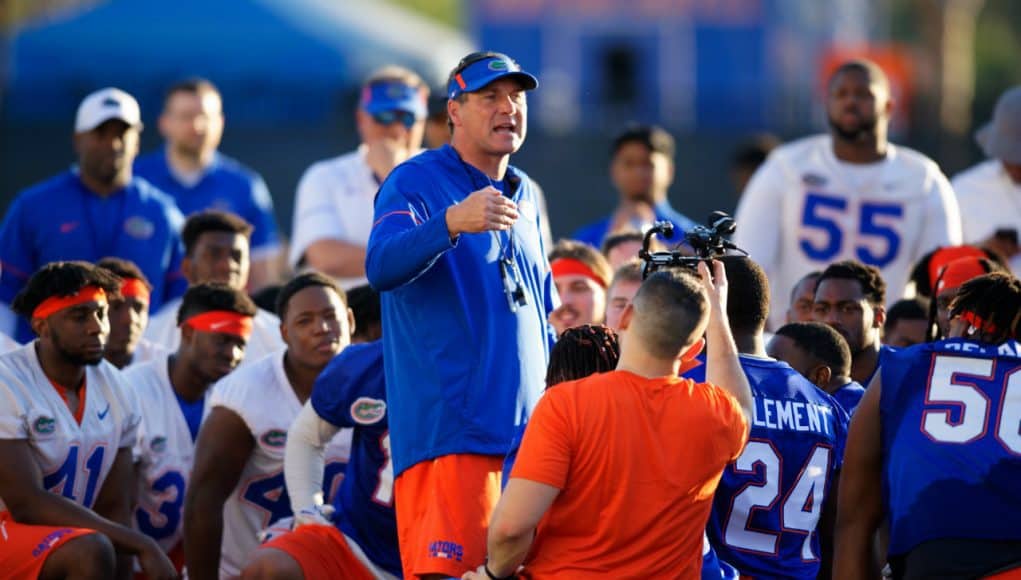The topic of paying college athletes isn’t new. The debate has two sides that are entrenched in their point of view with neither side willing to back down or cede an inch.
There has been a popular video game franchise (EA Sports NCAA Football) killed off because of a class action lawsuit that settled for $60 million dollars.
In an Accent Speakers gathering hosted by UF Journalism chair Ted Spiker and in front of more than 100 students Dan Mullen was asked his opinion. The question was phrased in a way asking Mullen if he thinks that Division I athletes should be paid or be able to market themselves or their likeness.
Mullen was quick to point out that those are two very different scenarios and started with the question of paying players.
“They get an awful lot of benefits already,” he said. “They get a full scholarship to come to the University of Florida. They’re on the team. They get cost of attendance; they get room, board, tuition, books, fees and cost of attendance to come here.”
That’s the hard line argument against paying players but Mullen added a new thought that hasn’t really been broached before. If you pay players does that make them employees of the university, then any monies they would receive would be taxed by the IRS and if that is the case, at what point is paying them a diminishing return?
“So you get into massive tax code questions. Everybody wants to say we should pay the players, get into the legal side of it before you jump up and say let’s go pay the players. Get into the IRS tax code laws. None of these guys could afford to pay the taxes,” he said. “They get tutored. We supply tutoring. Does that become a taxable benefit because they’re a paid employee? I’m a paid employee of the university. I get parking. That’s a taxable benefit. I have to pay taxes on my parking sticker. Anything I do, if I get a ticket to a game that’s a taxable benefit from the university and I have to pay taxes on the value of the ticket. Their scholarship would become that way. The amount of money you would have to pay them, if you pay them a certain amount they would have to get that much money and even more because of taxable benefit issues just to pay for the value of their scholarship.”
That’s certainly a fair point and something that, if legislation were ever to come to the table to pay players, would certainly need to be addressed.
On the other hand, Mullen said he didn’t have a problem with players being able to market themselves. Even that scenario, in Mullen’s mind, would raise more question marks.
“The image issue, I’m OK with that one. It’s going to get into a tricky deal, which gets into how you want to monitor or legally pay players,” he said.
“I think it could cause a lot of dissension among teams. I think the players would realize that their value isn’t as much as they think that they are. As far as the marketing themselves and the value.”


